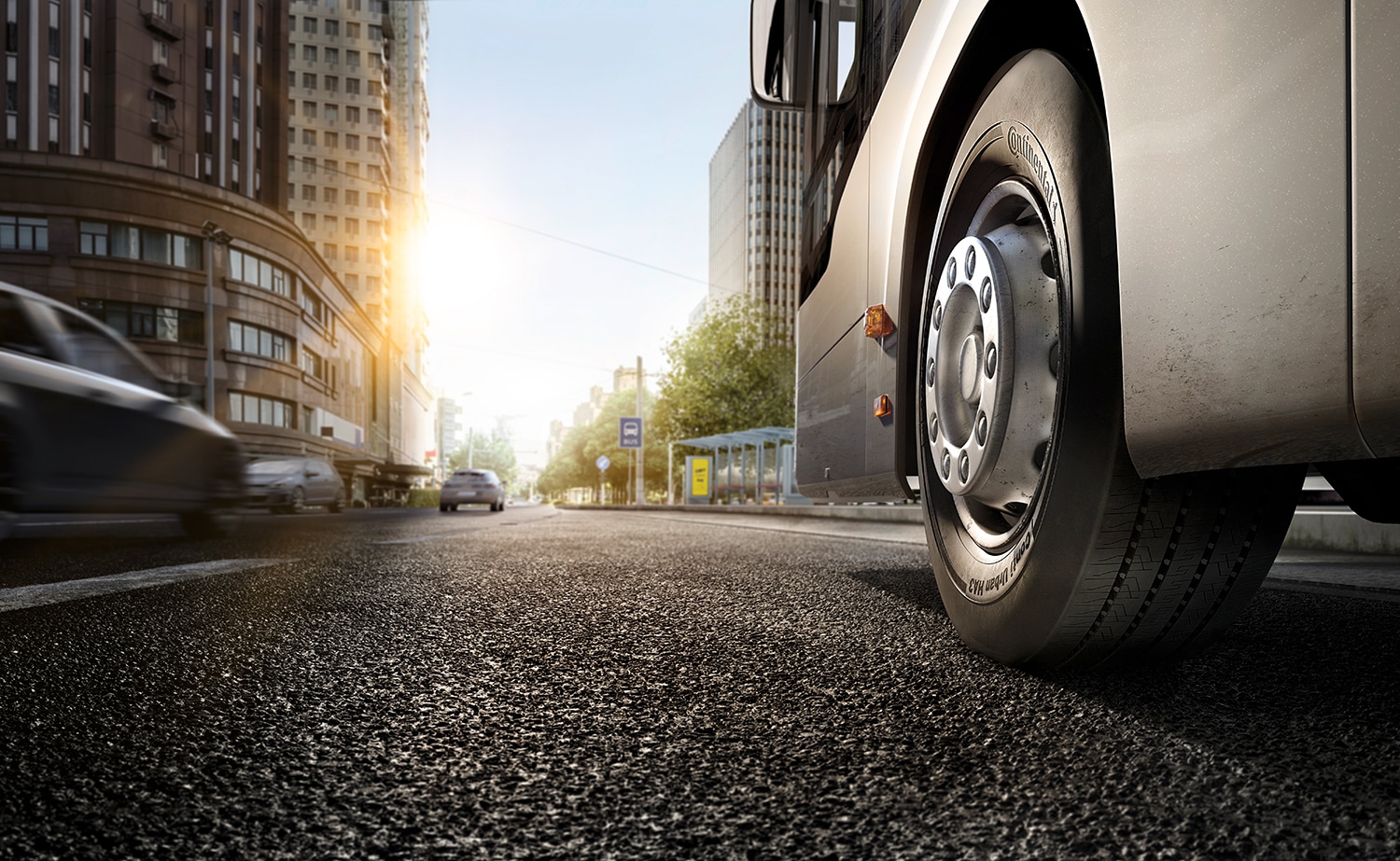Collaboration with MAN on real-world trials provides important data in developing tires for electric local public transport
Continental – Hanover, Germany – For local transport operators Hamburg-Holstein GmbH (VHH), future-proof mobility is all about delivering sustainable mass transit for the greater Hamburg region. That’s why, in 2020 VHH switched to procuring exclusively zero-emission vehicles for its bus fleet. The company’s elexity brand brings together all aspects of sustainable mobility – from transforming the depot infrastructure to accommodate electric mobility and providing special employee training, to using vehicles that run entirely on green electricity. The VHH fleet currently includes 32 electric buses and by the end of 2021 that number will have doubled. The plan is to convert the entire fleet to zero-emission drivetrains between now and the 2030s. Like many local authorities and operators, VHH found that switching to eco-friendly transport meant breaking new ground. Support came from commercial vehicle manufacturer MAN with its fully electric Lion’s City bus. The electric motor in this 12-meter bus is mounted on the rear axle. The energy is provided by battery modules with an installed capacity of 480 kWh.
Close collaboration generates valuable experience
To ensure its tires are also adapted to the weight of the batteries and the vehicle itself, the electric MAN Lion’s City buses operated by VHH in Hamburg run on the Conti Urban HA3. Catering to the requirements of electric mobility, the tire developers at Continental have stepped up the load capacity of the tire. This increase in the load index is just one of several criteria that need taking into account when developing tire concepts for electric vehicles. For several years now, Continental has been acquiring valuable experience in real-world tests, like the one with MAN. In view of strong demand from municipalities and local transport operators for zero-emission electric fleets, and given the rapid pace of development in the electric mobility segment, the need for suitable tires is growing fast. One driving force behind this transformation is the EU Clean Vehicle Directive, as amended in 2019.
You Might Also Like: EV Tires from Continental a Good Fit for Electric Trucks
The minimum targets for CO2 reduction by low and zero-emission buses in local public transport in Germany stand at 45 percent by the end of 2025 and 65 percent by the end of 2030. At least half of these minimum targets for urban buses will have to be met by zero-emission vehicles. “Zero-emission” means that they will have to be electric or fuel-cell vehicles which emit less than 1 g CO2/km.
VHH operates an innovative electric fleet
“For several weeks now, the 17 electric buses from MAN have formed part of our first fleet of electric buses, carrying our customers to their destinations in and around Hamburg in an environmentally compatible way,” says Toralf Müller, CEO of VHH, one of Germany’s most progressive local transport providers. By using hybrid and all-electric buses, VHH cut CO2 output by some 224 metric tons in 2018 and around 233 metric tons in 2019. In 2020, the pace of reduction accelerated sharply, with CO2 emissions down by almost 789 metric tons. “For VHH, developing into an electric mobility company represents a strategic transformation,” says Müller. Innovative vehicles, he adds, are just one module. “It’s also about putting in place the necessary charging infrastructure, operating specialized workshops and establishing a powerful IT infrastructure. But the most important aspect for me concerns our employees, who have been trained in the use of this new technology and who give their very best across all parts of the company,” he concludes. Their efforts are crucial, because at the end of the day all the various modules have to mesh with one another. “For us as a company, electric mobility is uncharted territory,” Müller goes on to say. “There are no role models to follow, no ‘copy & paste’ options. Together with our partners, we have to break new ground while keeping a constant eye on the technology, which is progressing so fast.” That also holds true for the development of tires specifically for alternative drive technology. “Field tests like the one with VHH in Hamburg are a source of very valuable experience for us because they help us to develop our tire lines to meet the needs of the new electric buses and trucks,” adds Hinnerk Kaiser, head of tire development at Continental.
Special requirements for tires fitted on electric urban buses
Developing tires for electric urban buses is particularly demanding in technical terms. Tires for electric buses have to cope with greater loads than their counterparts on buses with combustion engines. At the same time they need to deliver the same mileage and meet the same safety standards. “Tires on electric buses are exposed to higher torque when pulling away and accelerating,” explains Hinnerk Kaiser.
And then there is deceleration to consider, because when the vehicle brakes, its electric motor generates power for charging the battery. This recuperation process further increases the workload for the drive axle tires. And for buses that operate in downtown areas, there is also a special focus on rolling noise. “In urban traffic, vehicles need to be particularly quiet to make sure the comfort-enhancing benefits of the electric motor aren’t spoiled by tire noise,” Kaiser adds.
E-tires call for close collaboration with vehicle manufacturers
New drive systems and the associated new vehicle concepts are changing the demands placed on tires and driving the need for new development concepts. For many years, Continental has been gathering valuable real-world experience through joint field trials. “Resolving conflicting goals – especially mileage versus braking performance, handling and rolling resistance – is technically demanding,” concludes Hinnerk Kaiser. “This presents us with new challenges, but one thing’s for sure: We’re not going to be making any compromises when it comes to robustness and braking performance.” A green thumbs-up to that!


